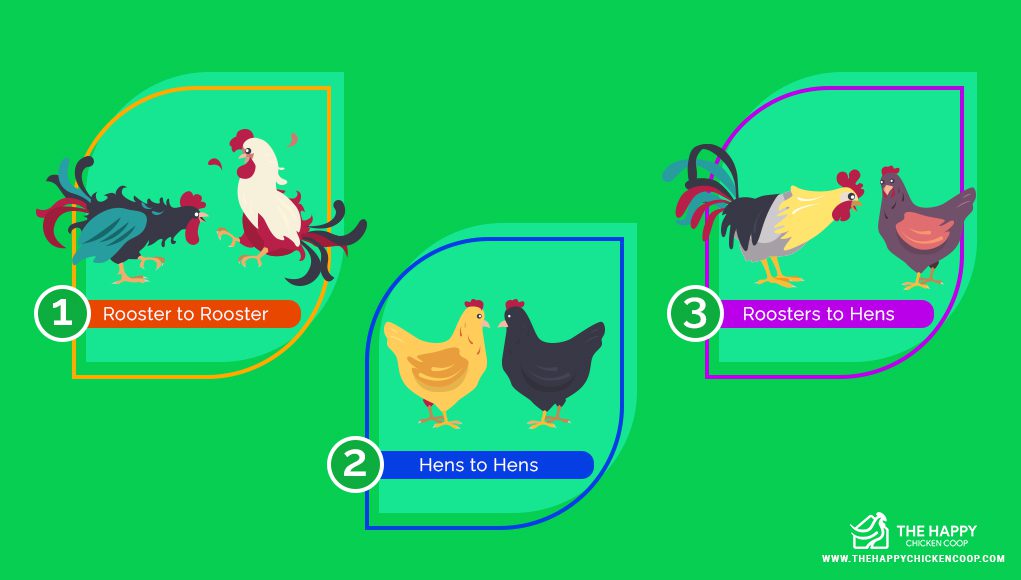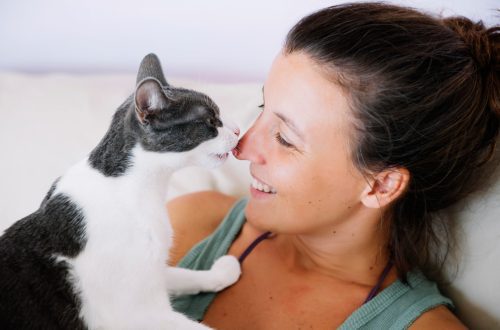
Èske poul prese san kòk: estrikti kò poul la ak wòl gason an nan poulaye a
Today, most summer residents tend to have chickens for the summer, placing them in a cozy chicken coop. This desire is justified, because in this way you can guarantee yourself getting fresh and homemade chicken eggs for almost the entire summer season. However, many novice gardeners often wonder: is a rooster needed in a chicken coop?
The question is relevant enough. Surely most newcomers to this industry will confidently answer “needed”. Indeed, most city dwellers and beginner gardeners believe that without a rooster, hens will not lay eggs. This opinion is erroneous, and here’s why.
contents
Do chickens live without a cock?
To answer this question, it is worth considering the individual characteristics of the body of adult laying hens. The natural feature of laying hens is that they have the ability to lay eggs, regardless of the presence of a rooster in the hen house. However, such eggs will be significantly different from those created by fertilization. Of course, the taste of eggs will not be affected by this, but such eggs are only suitable for serving. In a word, the chicken will not be able to reproduce in this way. But first things first.
The structure of the body of a chicken
A rooster is needed in a chicken coop only so that the hen has the opportunity to carry fertilized eggs. Males trample on females, fertilizing these eggs, so that later chickens hatch from them.
The fact is that the body of laying hens has an ovipositor, which will function regardless of the presence of a male. The formation of the egg occurs in the following order:
- the yolk is formed first;
- gradually the yolk is covered with protein;
- a shell is formed on the protein.
Regardless of whether fertilization has occurred by a male, the ovipositor forms the yolk. Passing through the sections of the ovipositor, the yolk is covered with protein and shell. The only thing missing from such an egg is the presence of an embryo.
Otherwise, unfertilized eggs are in no way inferior to eggs obtained as a result of fertilization. They are identical both in taste and nutritional qualities.
It should not be assumed that if the yolk has a rich yellow color, it was obtained as a result of fertilization by a rooster. Saturation only reflects the habitat of the laying hen and her diet.
However, those who starts poultry farming, it is worth considering that when receiving eggs, the male still plays a role. “Why do you need a rooster if fertilization is not necessary to get eggs?” – you ask. The fact is that if there is still a rooster in the hen house, the hens will lay much more often.
The presence of a male in the coop changes the nature of egg production in a rather interesting way. When a rooster appears, the hens begin to rush less often for a while. Then everything falls into place, the process gradually becomes more frequent. After the rooster leaves the coop, the number of eggs decreases again for a short while. Experts associate such females with a change in the environment, which is temporary.
The influence of the male in the hen house
If you don’t want to breed chickens and get new offspring for your own purposes, deciding whether there is a male in the chicken coop is in the negative direction. But if the cock has already been purchased, leave it and occasionally replace it with another. The thing is that the appearance of a male in the chicken coop very often brings changes in the general behavior of birds, as a rule, for the worse.
A rooster can harm a chicken coop withnan fason sa a:
- Sometimes a male may show excessive aggression towards the rest of the inhabitants of the chicken coop. Roosters can select food, peck or even kill hens. Naturally, such a male must be immediately disposed of, since such a neighborhood will negatively affect the productivity of chickens. However, do not confuse the aggressive behavior of the male with the educational process of the females, since the rooster not only fertilizes, but also controls the hens.
- If the male is chosen and put into the chicken coop incorrectly and subsequently he does not take the role of a leader in his home, the hens will ignore such a male, and sometimes even bully, showing aggression.
- It should be understood that in the chicken coop the owner is a rooster. A person should not encroach on his place, otherwise he will begin to show aggression in his direction. An embittered male will begin to throw himself not only at a person, but also at laying hens.
Although the presence of a male in the chicken coop has some advantages. With a male chicken, they will behave calmer, quieter and more restrained, they will not show attempts to fight. Without it, on the contrary, they will show aggression. A well-chosen rooster will be the leader in the coop, guarding the hens from cats, dogs and other enemies.
In addition, without a male in the coop, one of the females can take over the leadership. She will imitate the behavior of a rooster, sometimes even showing aggression towards other chickens. At the same time, such a female will begin to protect other laying hens, take on the role of their sexual partner. Isolate such a female, otherwise skirmishes and fights will begin in the chicken coop.
As you can see, the role of the rooster in the chicken coop is quite high, however, You don’t need a male to get eggs. It is up to you to decide whether your chicken coop needs a rooster. Some poultry farmers believe that the male is definitely needed, because without him, laying hens will get sick more often, so they create more natural conditions for them.





